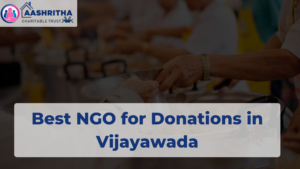Education is a fundamental right—but for millions of children with disabilities in India, access to quality, inclusive education remains a distant dream. Barriers like social stigma, lack of infrastructure, and inadequate training for teachers often exclude children with disabilities from mainstream schools.
In this challenging scenario, Non-Governmental Organizations (NGOs) play a pivotal role. They bridge gaps, break down prejudices, and work relentlessly to create inclusive learning environments that welcome and support every child, regardless of their abilities.
What is Inclusive Education?
Inclusive education means that children with disabilities learn alongside their peers in regular classrooms with appropriate support. It promotes equality, respect, and participation for all learners—celebrating diversity rather than isolating it.
But inclusion isn’t just about physical access to schools. It’s about attitudinal, academic, and emotional support that allows every child to thrive.
How NGOs Promote Inclusive Education
1. Raising Awareness and Fighting Stigma
NGOs conduct community outreach and sensitization campaigns to challenge the misconceptions and stigma surrounding disability. These efforts help families, schools, and society understand that children with disabilities are capable and deserving of equal educational opportunities.
2. Training Teachers and School Staff
Inclusive education requires teachers who are equipped to handle diverse needs. NGOs often:
- Provide specialized training in inclusive teaching methods.
- Introduce tools like sign language, Braille, or assistive technology.
- Create awareness about individualized education plans (IEPs).
3. Building Accessible Infrastructure
Many schools in India lack basic accessibility. NGOs partner with schools to:
- Install ramps, accessible toilets, and visual signage.
- Provide mobility aids and classroom modifications.
- Advocate for disability-friendly transportation.
4. Providing Educational Resources and Aides
To support learning, NGOs often supply:
- Assistive devices like hearing aids, wheelchairs, and magnifiers.
- Learning materials in Braille, large print, or audio formats.
- Speech therapy, physiotherapy, and counseling services.
5. Policy Advocacy
NGOs actively work with local and national governments to:
- Implement and monitor inclusive education policies under the Right to Education Act and the Rights of Persons with Disabilities Act.
- Advocate for budget allocations, inclusive curricula, and stronger legal enforcement.
6. Empowering Parents and Caregivers
Many families face emotional, social, and financial challenges in supporting children with disabilities. NGOs offer:
- Parent training programs.
- Support groups and helplines.
- Guidance on accessing government schemes and benefits.
Aashritha’s Commitment to Inclusive Education
At Aashritha Charitable Trust, we believe that every child has the right to learn, grow, and dream—regardless of ability. Our initiatives aim to:
- Support children with physical, intellectual, and developmental disabilities.
- Work with schools to create inclusive classrooms.
- Provide counseling, therapy, and customized learning aids.
- Advocate for inclusive policies at the grassroots level.
Through collaboration and compassion, we’re helping build a society where no child is left behind.
Conclusion
Inclusive education is not just an educational approach—it is a moral and social responsibility. NGOs across India are proving that with the right support, children with disabilities can learn, achieve, and contribute meaningfully to society.
By fostering inclusive schools and empowering families, NGOs are transforming lives and reshaping the future—one classroom at a time.👉 Support Aashritha Charitable Trust in our mission to create inclusive learning environments for every child. Together, we can ensure that ability—not disability—defines a child’s future.





